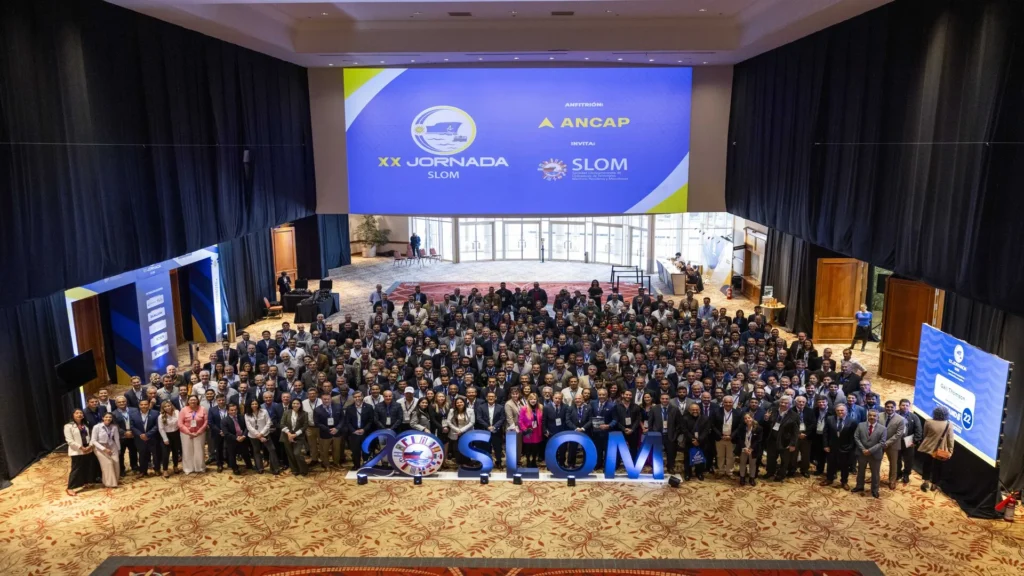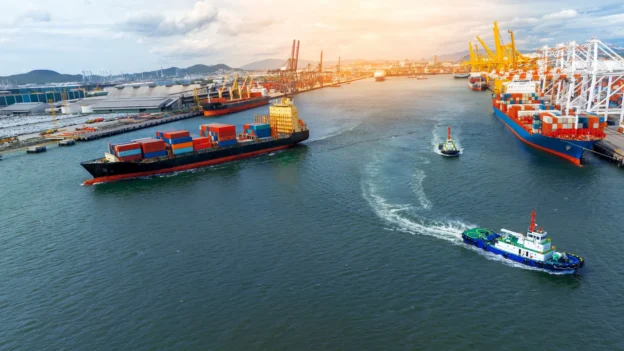In the current context of energy transition, the Latin American Society of Marine Terminal Operators for Oil and Monobuoys (SLOM) plays a key role as a catalyst for change towards more sustainable practices. Its influence encompasses both oil tank yards and marine facilities, two key components of the energy infrastructure in Latin America.
This strategic role involves the adoption of innovative energy technologies, operational optimization, the promotion of cleaner fuels such as liquefied natural gas (LNG) and hydrogen, digitization of operations, and training of personnel to manage these new infrastructures effectively and safely.
Overall, the company helps its members adapt to this transition by implementing sustainable strategies, managing innovation and building regional collaborations. These efforts are aimed at ensuring that the region’s maritime and logistics industry achieves a successful energy transition in line with global sustainability goals.
Transformation of oil tank yards
Oil tank farms, traditionally designed for the storage of fossil fuels such as crude oil and its derivatives, are evolving to meet the demands of the energy transition. In this context, SLOM plays a crucial role in guiding this transformation.
One of the main areas of focus is the diversification of stored fuels. Yards are being adapted to handle renewable fuels such as biofuels, LNG and green hydrogen, which represents a significant change in energy storage infrastructure.
In addition, the company is leading initiatives to promote the research and adoption of more advanced energy storage technologies. These include the use of large-scale batteries to store renewable energy generated from sources such as solar and wind. Such solutions enable yards to integrate more efficiently into renewable energy grids, thus contributing to the decarbonization of the sector.
Another key aspect of this transformation is the implementation of carbon capture and storage (CCS) technologies in terminals that store oil and its derivatives. These technologies help to significantly reduce CO₂ emissions associated with operations, aligning with global emission reduction targets. In this context, it acts as a facilitator for the adoption of these solutions, providing knowledge and tools to its members.
Digitalization and automation are also crucial aspects. During various events and forums, SLOM’s Board of Directors has highlighted the importance of these technologies as key tools to improve operational efficiency and reduce environmental impact. Intelligent inventory management and remote monitoring systems make it possible to optimize operations, reduce emissions and ensure greater safety in tank farms.
Modernization of maritime facilities and single buoys
Offshore facilities and monobuoys are essential components in the energy supply chain, as they facilitate the transport of products across the oceans. As part of the energy transition, these infrastructures must be upgraded to handle cleaner and more sustainable fuels.
One of the most relevant initiatives is the adaptation of monobuoys for the transportation and storage of alternative fuels such as LNG and hydrogen. These adaptations require changes in the physical infrastructure, as well as the implementation of new safety standards and specialized training.
SLOM is also promoting the installation of electric charging infrastructure at ports, including charging stations for electric or hybrid vessels. This action reduces local emissions at ports and promotes cleaner shipping. These initiatives are key to moving towards a sustainable energy system that is less dependent on fossil fuels.
SLOM as a catalyst for energy transition
SLOM is positioned as a key catalyst in the region’s energy transition. Its role includes fostering collaboration between terminal operators, governments and technology companies. These strategic alliances are essential for the exchange of knowledge and the adoption of best practices in the industry.
It also promotes technology transfer, supporting operators in the implementation of cleaner and more efficient solutions, such as renewable energies, carbon capture, energy storage and automation.
Another key aspect of SLOM’s role is the development of innovative financing models, including access to green funds and other fiscal incentives to facilitate investments in sustainable technologies. In this way, SLOM helps accelerate the adoption of new technologies and fuels in the sector.

SLOM as a regional focal point
As the focal point in Latin America, SLOM centralizes energy transition efforts in the region, defining standards and regulations that promote sustainability in the maritime industry. These standards ensure compliance with clear objectives in emissions reduction and energy efficiency, aligning with international commitments on climate change.
It also organizes events, seminars and discussion platforms that enable the exchange of experiences and collective learning in new technologies. This collaborative approach promotes the development of solutions adapted to regional realities.
SLOM also leads innovation networks involving universities, research centers and technology companies, driving the development of advanced solutions for the energy and maritime sectors. The training of human talent is a priority, ensuring that professionals are prepared for new challenges.
Finally, it is developing environmental certification programs that recognize operators that implement sustainable practices. These certifications promote clean technologies and make best practices visible in the region, encouraging others to follow suit.
Conclusion
SLOM plays a key role in Latin America’s energy transition. By acting as a catalyst and focal point, it facilitates the adoption of innovative technologies, promotes sustainability and fosters regional collaboration. Its leadership enables the maritime and logistics industry to position itself as a global benchmark in sustainability, contributing significantly to meeting international climate goals and ensuring a cleaner and more efficient energy future.
This article was developed by SLOM and published as part of the fourth edition of Inspenet Brief magazine December 2024, dedicated to technical content in the energy and industrial sector.

